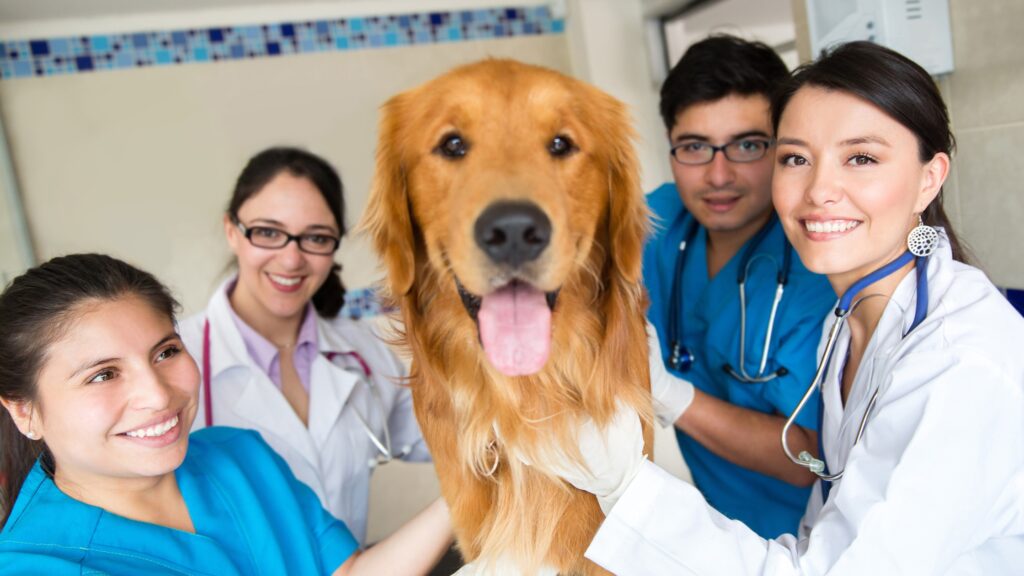If you’re ever worried about your pet’s health, finding the right veterinarian is key. After all, your furry (or scaly, or feathery!) friend deserves the best care possible.
You want a vet who not only provides excellent medical care but also takes the time to answer your questions and make you feel comfortable.
So, how do you go about finding the right vet for your pet?
Let’s walk through the process—from doing your research to meeting the vet in person—so you can feel confident in your choice.

Do Your Research
First things first: research. Choosing a vet is a big decision, so don’t rush it.
One of the best ways to start is by asking for recommendations. Friends, family, and fellow pet owners are excellent resources. They can give you insight into their experiences and whether their vet might be a good fit for your pet.
You can also check out online reviews or social media for feedback from other pet parents. Platforms like Yelp, Google, and even local Facebook groups can be valuable sources for vet recommendations.
Additionally, take a peek at the clinic’s website or social media pages. Look for services offered and find out if they treat your pet’s species (if you’ve got a rabbit, not all vets may be well-versed in rabbit care, for example).
You’ll also want to see if they offer any additional services like emergency care or specialized treatments.
Check Licensing and Certification
It’s important to make sure any vet you consider is properly licensed and certified. This is crucial because a license ensures that the vet has undergone the necessary training and passed the exams required to practice veterinary medicine. You can usually find this information on their clinic’s website or by calling the office directly.
Additionally, certifications in specialized fields (like dermatology or surgery) can be a plus if your pet has specific health needs. For example, if your dog has recurring skin issues, a vet with dermatology experience might be a great choice.
Ask Around
One of the best ways to gauge whether a vet is right for your pet is by asking people in your community. Trustworthy friends, neighbors, or even your local groomer might have some great suggestions. Ask them about their experiences and whether they felt comfortable with the vet’s care.
Don’t hesitate to reach out to your local pet stores or animal shelters either—they often have a close working relationship with area vets and can provide helpful recommendations.
Consider Experience
While all vets have the training to care for animals, experience can really make a difference. A vet with years of practice under their belt will likely have seen and treated a wide variety of conditions.
If your pet has specific health concerns or is a bit more high-maintenance (hello, senior pets!), you might want to find someone with experience treating those kinds of issues.
Additionally, some vets specialize in specific areas of pet care. For instance, if you have an exotic pet like a parrot or a reptile, you’ll want a vet who has a good amount of experience treating exotic species. It’s not just about how long they’ve been in practice, but whether they’ve worked with animals like yours.
Meet with the Vet

Once you’ve done your homework, it’s time to meet with the vet in person. This step is super important because it gives you a chance to see the clinic, meet the staff, and ask any lingering questions. Take a tour if they offer it.
Check out the waiting area and exam rooms to see if they’re clean and pet-friendly. You can also get a feel for the overall atmosphere—do you and your pet feel comfortable there?
When you meet the vet, don’t be afraid to ask questions. Ask about their approach to care, what to expect during routine visits, and how they handle emergencies. The goal is to feel at ease, knowing your pet is in good hands.
Sign a Care Agreement
After you’ve found a vet you like, it’s time to put everything in writing. Many veterinary practices will have you sign an agreement or care plan, which outlines the services your pet will receive and any payment plans or policies they have in place.
This can cover everything from routine checkups and vaccinations to any necessary tests or treatments. Having a clear understanding of what’s covered will help avoid any surprises down the road.
You’ll also want to discuss any insurance coverage your vet accepts, if applicable. While some vets work directly with pet insurance providers, others might not, so it’s good to know how that process works beforehand.
Final Thoughts
Choosing the right veterinarian for your pet doesn’t have to be stressful. By doing your research, checking licenses, asking for recommendations, and meeting the vet in person, you’ll be well on your way to finding a trusted partner in your pet’s health care.
Your pet is part of your family, and they deserve the best care you can provide. With the right vet on your side, you’ll have peace of mind knowing they’re in good hands.
In the end, trust your gut. If you and your pet feel comfortable with a vet, that’s a great sign!